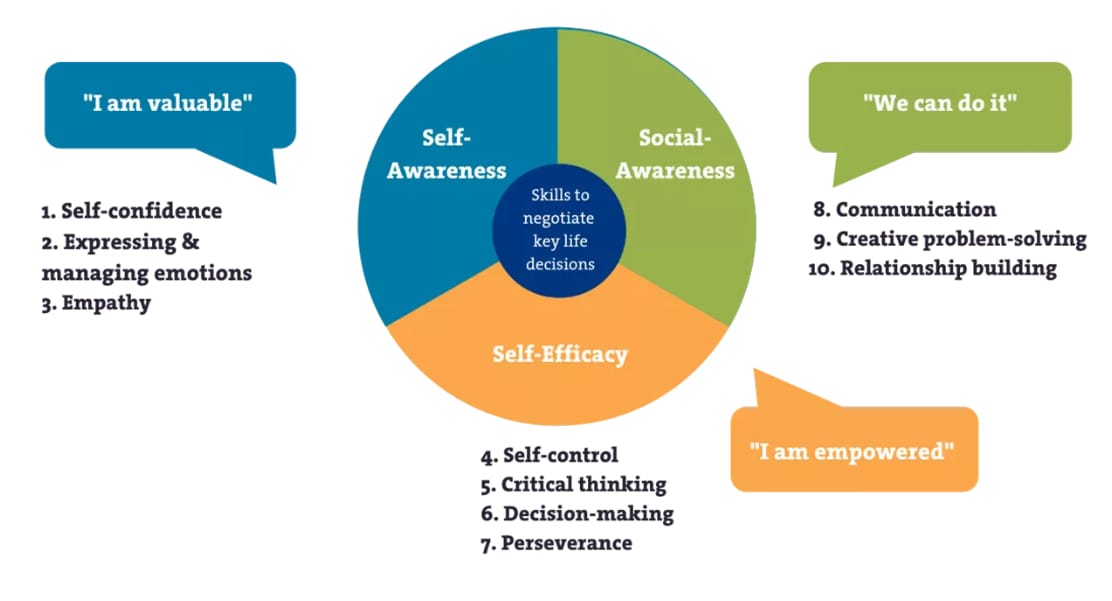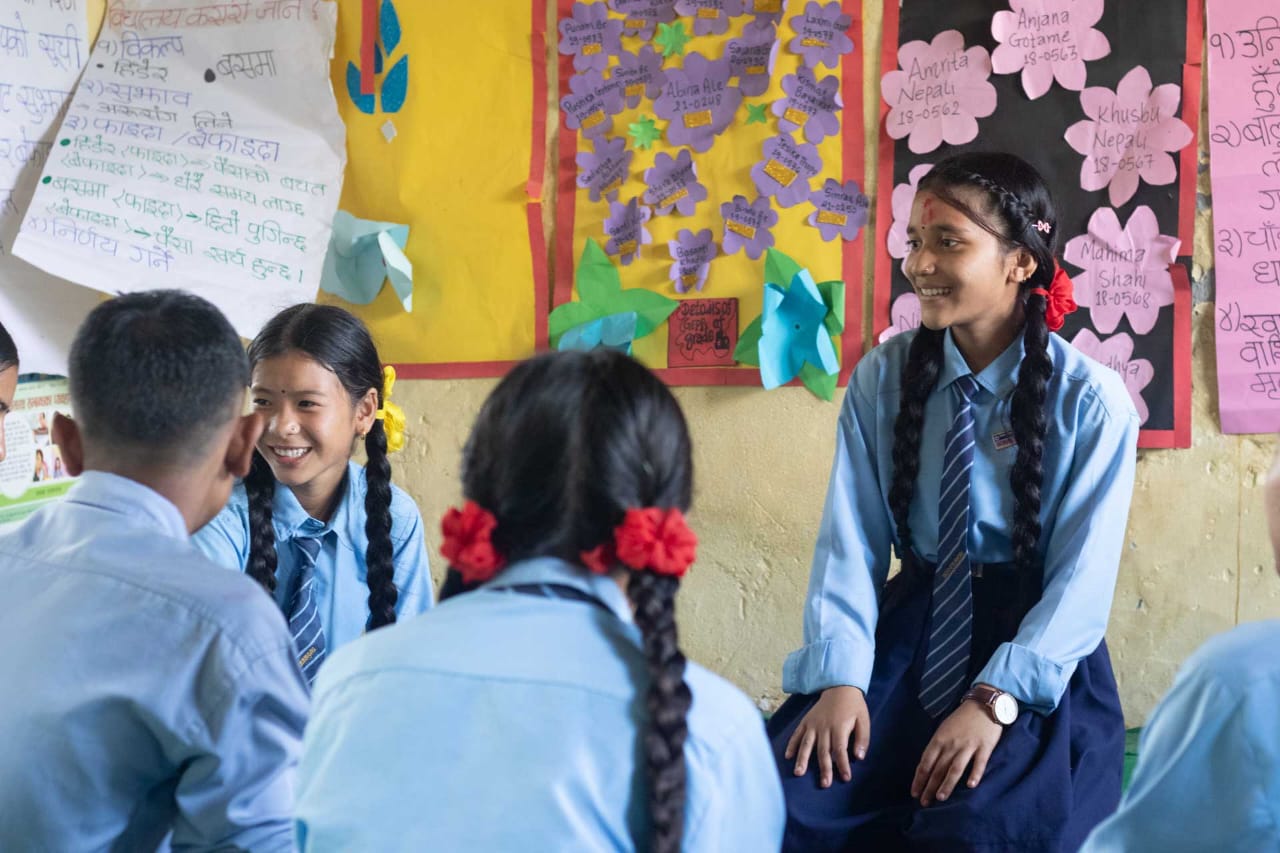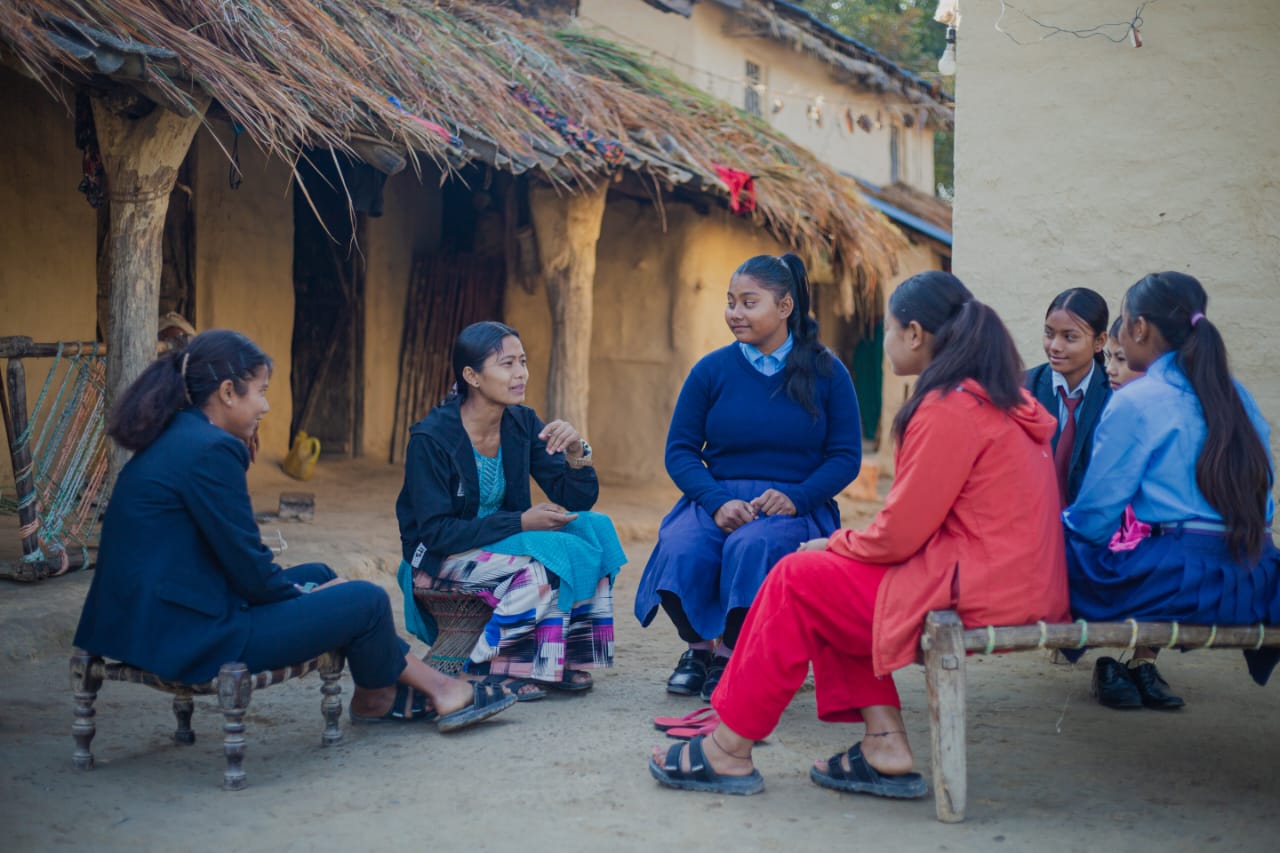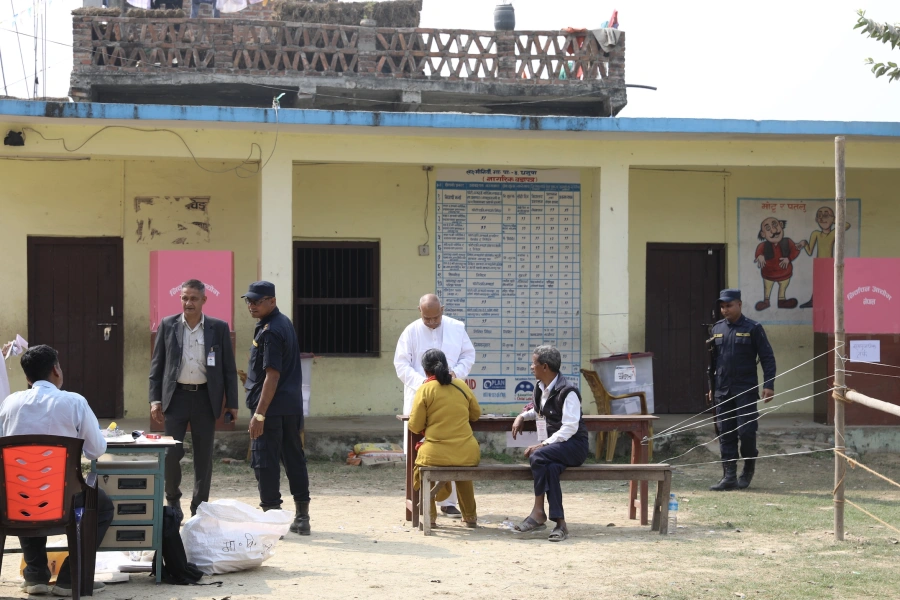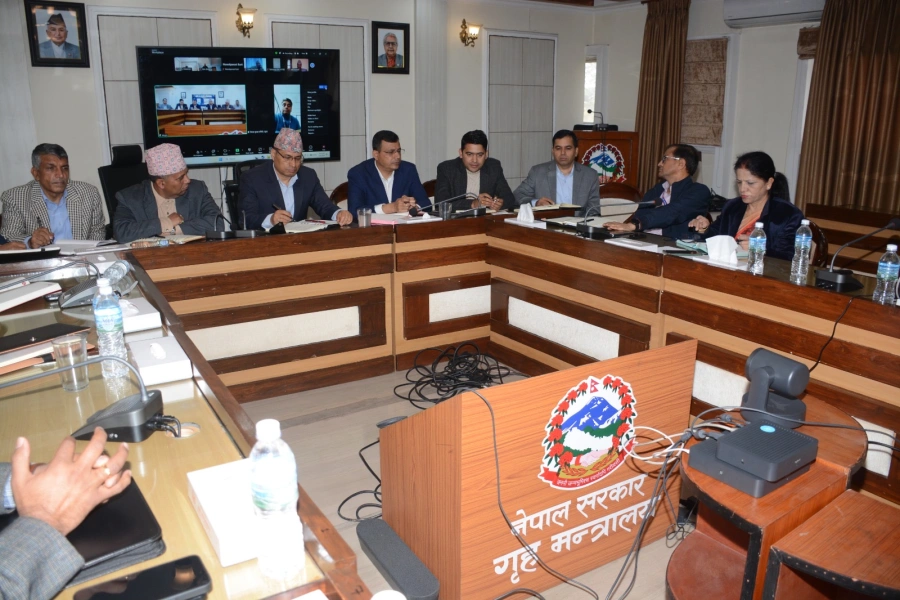Room to Read's Aluminae and National Adolescent Girls Network's Secretary for Banke District, Rahimat Jaha advocating for girls in community for education.
Making room for young girls and women to find connection and equipping them with life skills is essential to keep them longer in school. Ensuring that girls complete secondary school is essential for them to lead a better life.
School life is not easy for the majority ofadolescentgirls especially in historically low-income communitieswhere girl’s education is second priority when families go through struggle. It is also not easy since this is the time when girlis most at risk of getting married early and dropping out of school. The average age of early marriage in Nepal is 19, which falls below the legal age for marriage. This is where life skills is most important to learn to navigate their life and make informed decisions.
Through life skills, girls get support to stay in school longer, progress towards completion of secondary school, and acquire the skills and agency they need to make informed choices about their lives and realize their potential. Girls who participate in our program often go on to university or a career of their choosing. In fact, in a survey of five-year alumnae from Room to Read’s Girls’ Education Program, 82 percent of graduates were either employed or participating in tertiary education.Girls who complete their education are more likely to work and earn more money and less likely to become child brides or young mothers.
One of the four key components of Room to Read’s Girls’ Education Program is the development of critical life skills that help girls in and beyond the classroom. Our Life Skills Education Framework focuses on 10 life skills, which fall under three key domains: self-awareness, self-efficacy and social awareness.
Something you hate

Self-Confidence: Having self-confidence means understanding that you are valuable and believe you are worthy of great success. When girls are self-confident, they are able to make healthy decisions about school and their relationships. Topics include building self-awareness and identity, learning to identify and appreciate strengths, values and beliefs, leadership skills and being a role model, and standing up to bullying.
Expressing and Managing Emotions: Expressing your emotions means you are able to share your feelings with others. When you express your emotions, you are able to identify your feelings and understand how they impact your thoughts and behaviors. A girl who can express and manage her emotions can process challenging and difficult experiences in a healthy way. Topics include walking in other's shoes and understanding different perspectives.
Empathy: Empathy is the ability to recognize the emotions that other people experience. When you are empathetic, you are able to imagine what someone else is experiencing so that you can be a compassionate listener. When a girl is empathetic she is less likely to show unkind behavior towards others because she would not want to make someone feel sad. Topics include showing empathy to family members.
Meet Sajana. When her classmate Simran, aged 15, decided to marry early and eloped, Sajana took it upon herself to ensure that Simran was searched for and convinced to return to school. Sajana was acutely aware of the challenges Simran would face upon her return, including potential conversations and judgments that might discourage her from staying in school.
"As the child-club president and a friend, I took it upon myself to speak with the school and my classmates to facilitate Simran's transition. It certainly wasn't easy for her, but I am pleased that my friend is back in school."
Self-Control: Having self-control means that you are able to control your emotions and behave appropriately in difficult situations, at school and at home. When you can control your behavior in a healthy way you are practicing self-control. Topics include refusal skills and navigating peer pressure.
Critical Thinking: Using critical thinking skills help you evaluate information and look at a problem from many points of view. A girl who thinks critically will solve problems using logic, understand new subjects in school, and make healthy decisions about her life. It also helps girls better understand the opinions and feelings of their friends, teachers, and family. Topics include how to save money, identifying needs and wants and financing post-secondary education.
Decision-Making: Engaging in good decision-making skills means you think carefully about all of the potential outcomes of a decision. When a girl has good decision-making skills she is able to make smart decisions about school, friends and work that will bring her success.
Perseverance: To have perseverance means that you keep trying to do something even when it is hard and you do not succeed quickly or easily. Girls with perseverance are committed to achieving goals, learning new things and getting through difficult times in school and in life. Topics include problem-solving and goal setting, overcoming obstacles, and self-care and managing stress.
Communication: Good communication means speaking and listening effectively with others. Effective communication between individuals improves relationships. Communicating and listening well helps girls solve problems in a positive way, improve their friendships and become successful at school and in their careers. Topics include team building and working with others.
Creative Problem-Solving: Creative problem-solving means that when you have a problem, you find a solution. Girls can use creative problem-solving skills when they experience problems at school, with friends and at home. Topics include climate and gender justice.
Relationship Building: When you have relationship building skills, you are able to maintain your existing relationships and make new friendships that are positive and healthy. When girls learn to build healthy relationships, they are learning how to value and respect themselves and their new friends, practice their communication skills and build empathy and self-confidence. Topics include healthy boundaries and building trust.



